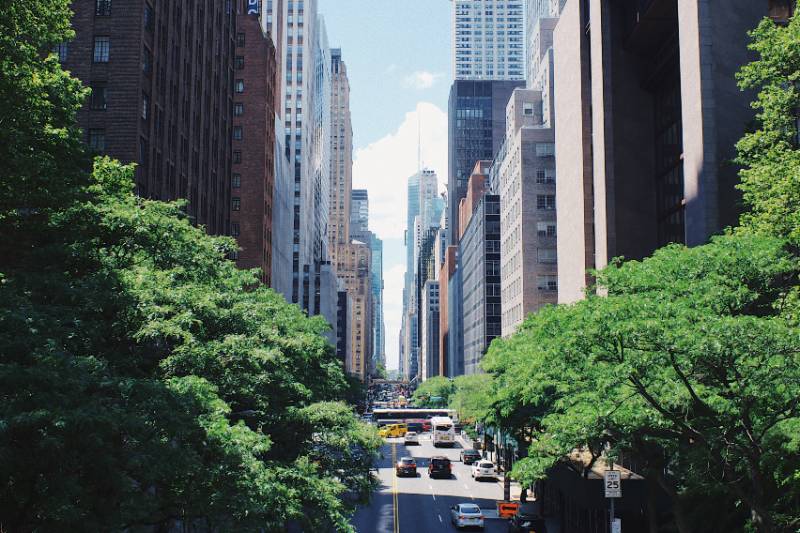Mapping and designing cities
Many cities and regions have started to consider the strategy of assisted migration in forest management, the uniqueness of urban climates has often been overlooked in such efforts. Given the increasing momentum of tree planting initiatives in and around towns and cities, this study will appeal to the urban foresters, designers, planners, and policymakers who are working on urban greening for climate adaptation. This study will also offer new insight into the selection of city trees, as well as their biological benefits in a wider landscape, for designers and planners to compare the effectiveness of different landscape intervention strategies.
This research won the ‘Best Paper Award’ in the 6th Smart and Sustainable Built Environments Conference in Sydney. Additionally, I am a peer reviewer for international journals Sustainability (ISSN 2071-1050) and Urban Science (ISSN 2413-8851).
Recent papers published by the Research group:
Han, Q., Keeffe, G., Caplat, P. and Simson, A. 'Cities as Hot Stepping Stones for Tree Migration', npj Urban Sustainability, (in press).
Han, Q. and Keeffe, G. (2020) 'Stepping-Stone City: Process-Oriented Infrastructures to Aid Forest Migration in a Changing Climate', in Roggemma, R. (ed.) Contemporary Urban Design Thinking: Nature-Driven Urbanism. Switzerland: Springer Nature, pp 65-80.
Han, Q., Keeffe, G. and Cullen, S. (2020) 'A Process-oriented Approach to Tackling the Wicked Problem of Forest Migration', 35th Passive and Low Energy Architecture Conference, A Coruña, Spain.
Han, Q. and Keeffe, G. (2019) 'Mapping the Flow of Forest Migration through the City under Climate Change', Urban Planning, 4(1), pp. 139-151.
Han, Q. and Keeffe, G. (2019) 'Stepping Stones: Assessing the Permeability of Urban Greenspaces to Climate-Driven Migration of Trees', Smart and Sustainable Built Environment, 8(3), Vol. 9 No. 3, pp. 246-257.
Han, Q. and Keeffe, G. (2018) 'Mapping the Permeability of Urban Landscapes as Stepping Stones for Forest Migration', The 6th Smart and Sustainable Built Environments Conference, Sydney, Australia: Emerald, 248-258. (This paper won the "Best Paper Award" in the conference).

LEAD PROJECT INVESTIGATOR Qiyao is a research fellow at the School of Natural and Built Environment. She holds a doctoral degree in Architecture and a Master’s in Landscape Architecture. She has 7 years of research experience in landscape design, urban forest, and green infrastructure. In her research, she uses mapping-based approaches to understand the complexities of urban and landscape systems and a research-by-design methodology to tackle difficult problems related to climate change.
Maintaining and enhancing the long-term health of trees is essential for urban forests so that they can continue to provide ecosystem services, such as climate regulation, air purification, and carbon sequestration. The rate of recent climate change has exceeded the capacity of some native trees in urban environments to adapt, leading to increased mortality and susceptibility to fungal disease, insects, and other pathogens. Efforts of assisted migration in urban areas can help establish new and better-adapted urban forests that support the sustainability of urban ecosystems.

